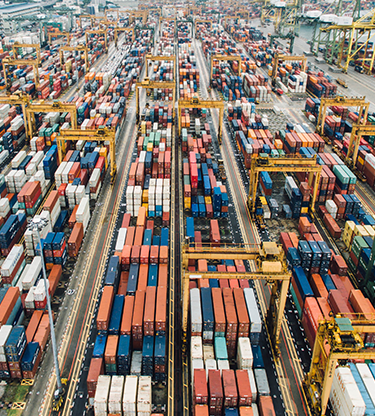How to fill out a customs declaration form

What is a customs declaration form?
4 minute readA customs declaration form accompanies an order of goods arriving into a country and provides details of the goods to the customs authorities. This way customs know the contents and value of shipments entering the country. Your customs form represents an acknowledgement that you have abided by the laws of both the origin and destination country.
When do I need a customs declaration form?
If you are a UK business exporting goods abroad, you will need to fill out and provide a customs declaration form to the shipment carrier of every order you send out. This is standard procedure for all carriers, and following Brexit is required even if you are sending goods to an EU country.
By you providing the customs form with the shipment, it can be viewed and documented by both the UK customs and the authorities in the destination country. If you are unsure over whether you need to provide a declaration form, the UK government website offers a quick questionnaire to inform you of your requirements.
In addition, you will first need an EORI (Economic Operators Regulation and Identification) number if you are moving goods from the UK to another country, or even from Great Britain to Northern Ireland. You can check which EORI number you need, and apply for it via the government website.
What do I need to declare at customs?
All shipments of goods heading overseas need to be declared at UK customs with the accompaniment of a declaration form. This is so the authorities can check for any banned or prohibited items, and receive your legal acknowledgement that your shipment abides by UK law.
How to fill out customs declaration form
A customs declaration form provides all the relevant details of your shipment to the customs authorities. The way you need to provide it can differ depending on the shipping/logistics carriers and methods you’re using, as well as the requirements of both the origin and destination country. However, the information is typically added to the order’s invoice or the shipping label, or provided via a dedicated customs declaration document.
A customs form will typically require the following information:
- Full name and address of sender
- Full name and address of recipient
- Date of send
- Quantity of item(s)
- Weight of item(s) and packaging
- Value of each item
- Item(s) description
- Invoice Number
- The commodity codes of your items
- Duty and VAT information
As mentioned above, different countries may have different laws regarding goods imported through customs, which may mean they require additional information. It’s important to research the legal requirements of the country you are sending goods to, as well as those that your shipment may be travelling through.
How moneycorp can help with your exporting needs
Whether you’re paying for overseas carriers or logistics companies, or transferring funds to international staff, your international payment needs can put you at the mercy of the currency markets. Exchange rates can be volatile, and particularly in 2021 can be very difficult to predict. This might result in significant shifts in the value you receive when exchanging money to pay in local currency.
Fortunately, by working with a foreign exchange specialist such as moneycorp, you’ll gain access to a range of tools that can help limit your exposure to the currency markets and allow you to make quick and easy overseas payments with great exchange rates and low fees. Speak with one of our specialists today to see how we can help you save money when exporting goods abroad.


